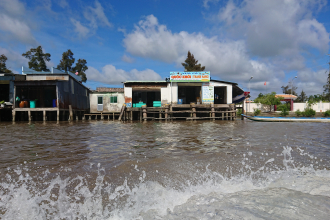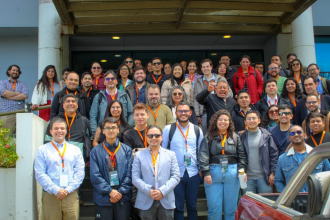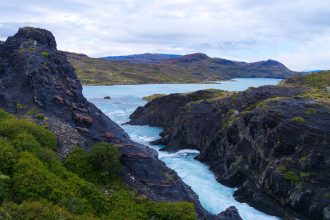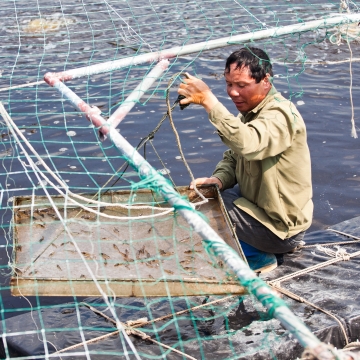Poverty and gender considerations in marine spatial planning: Conceptual Framework
The report provides a framework for ensuring that marine spatial planning (MSP) does not worsen poverty and gender inequality in developing countries, and that potentially marginalised groups are appropriately considered and engaged in the MSP process.
This report provides guidelines for the steps of a more inclusive MSP process.
The findings indicate that a scorecard can be used to guide the social sustainability of the MSP process. The criteria in the scorecard include:

Two EfD centers collaborate towards a fisheries management plan for Nigeria
Ghana and EfD Nigeria are implementing a joint project that aims to transfer knowledge and best practices from Ghana to Nigeria, leading to the development and implementation of Nigeria’s first…
Applying Economic Analysis to Marine Spatial Planning
To protect the oceans' natural capital and promote sustainable economic growth, the world needs to move beyond a business-as-usual relationship with its marine resources. For increasing numbers of countries, the solution is the "Blue Economy" approach. It allocates ocean space across traditional sectors such as fisheries and new ones such as offshore wind farms, intending to protect resources and benefit current and future generations.
The informal sawn wood value chains in Uganda: structure and actors
With increasing scarcity and spatial dispersion of tree resources, Uganda's forest sector – similarly to several other countries in Sub-Saharan Africa – has experienced a shift from the large-scale concessionary model historically used to access and harvest forests, to more
versatile models involving smaller-scale operators. The timber they produce is sold not only locally in producer countries but also across borders and beyond. Yet small-scale operators largely work outside established regulatory frameworks and as such remain invisible to national and international
Context, welfare sensitivity, and positional preferences among fisherfolks in a developing country
It is well established in the empirical literature that people care about relative status or positionality. Hence, any policy that makes someone better off imposes a negative externality on their peers. However, the effectiveness of public policy aimed at mitigating positional externality hinges on the drivers of relative concerns, which are individual and context-specific, requiring empirical analysis.

Study suggests solutions to water pollution problems in Vietnam’s seafood industry
Vietnam's seafood industry, a cornerstone of the nation's economy, grapples with challenges like water pollution, low productivity, and inefficiency. A groundbreaking study by EfD Vietnam researchers…

EfD Chilean team participated in the XIII Annual Meeting of the Chilean Society for Regional Studies (SOCHER)
The theme of the SOCHER 2023 meeting in the city of Valdivia in southern Chile was Territorial Challenges and Sustainability. Several EfD Chile fellow researchers, academics, and alumni from various…

EfD Chile researchers in a collaborative project on Patagonia rivers
Carlos Chávez and César Salazar , fellow researchers from EfD Chile, are part of a team of Chilean scientists that has received funding from the Chilean Ministry of Environment to develop a tool that…
Pagination
- Previous page
- Page 8
- Next page
